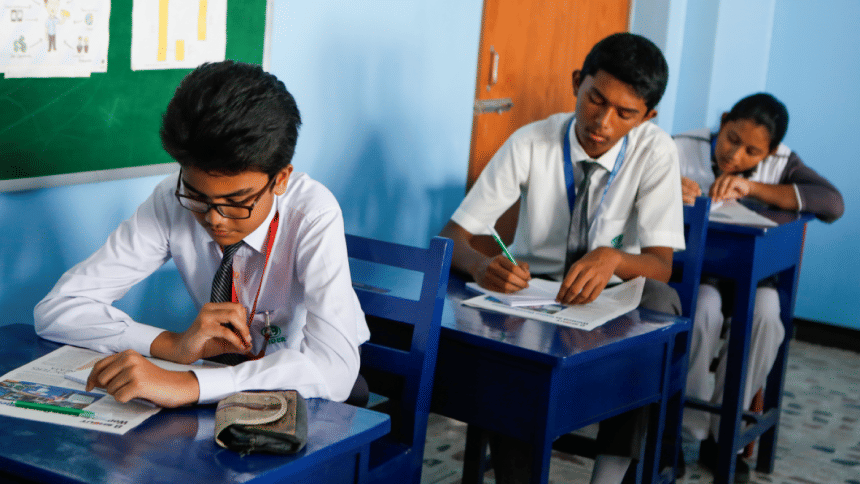Making a case for the quiet kid in class

A teacher in high school once wrote in my report card, "Noushin is talented, but she is quiet." It was a revelation for a 13-year-old me — talented and quiet don't quite go hand-in-hand.
Being perceived as talented, specifically "smart," required being outgoing to a certain degree. After all, when the teacher asks a question, the "smart" kids are known to raise their hand and share their answer with the whole class. Having the quiet sort of personality doesn't usually agree with that ordeal.
Being an introvert didn't help when occasionally, the class was made to sit around tables with students facing each other. While everyone was expected to discuss and interact more than usual, this was proven especially cumbersome to us, the quiet sorts.
Thus, doing good in class often required something I wasn't naturally good at.
In an attempt to prepare students for the "real world," schools often end up constantly pushing students to be more "outgoing, collaborative team players," as most job circulars I've come across have indicated. The premium placed on extroversion in most workplaces explains why universities increasingly prefer team assignments. Therefore, extroversion bias in primary or high school is just a foreshadowing of what is to come.
Yet, I would argue that schools should re-evaluate their teaching methods that give a tough time to introverts. No matter how relevant extroverted skills might be in getting ahead, the formative years of childhood is just not the right time to tell kids to bend their natures.
If a child's strength lies in deep thinking and reflecting on their own ideas, forcing them into a small group discussion will not only stifle the spur of creativity but only stop them from discovering what they are capable of under an ideal setting. Schools should acknowledge that constant social interaction required by the system is often draining to a section of the kids.
The urge to force kids into extroversion can also stem from the notion that introverts cannot socialise — therefore it is a shortcoming and must be overcome. The truth is, introverts can socialise but doing it within limits usually helps them come up with the best output. Our current classrooms do not accommodate this.
Introverts should not have to overcome the energy barrier of speaking up in front of a crowd every time they want to express an opinion. We need more introvert-friendly methods like participating in discussions through writing. The brainstorming sessions would bring much more out of introverts if they are allowed to take time and generate ideas on their own before exchanging with the group.
There is no denying the unfortunate fact that the world is governed by the extrovert ideal. While an extrovert kid might be called smart, a smart introverted kid is at best considered a "geek." We need to change this perspective if we want introverts to thrive, and what better place to start than school?
Noushin Nuri is an early bird fighting the world to maintain her sleep schedule. Reach her at [email protected]

 For all latest news, follow The Daily Star's Google News channel.
For all latest news, follow The Daily Star's Google News channel. 









Comments